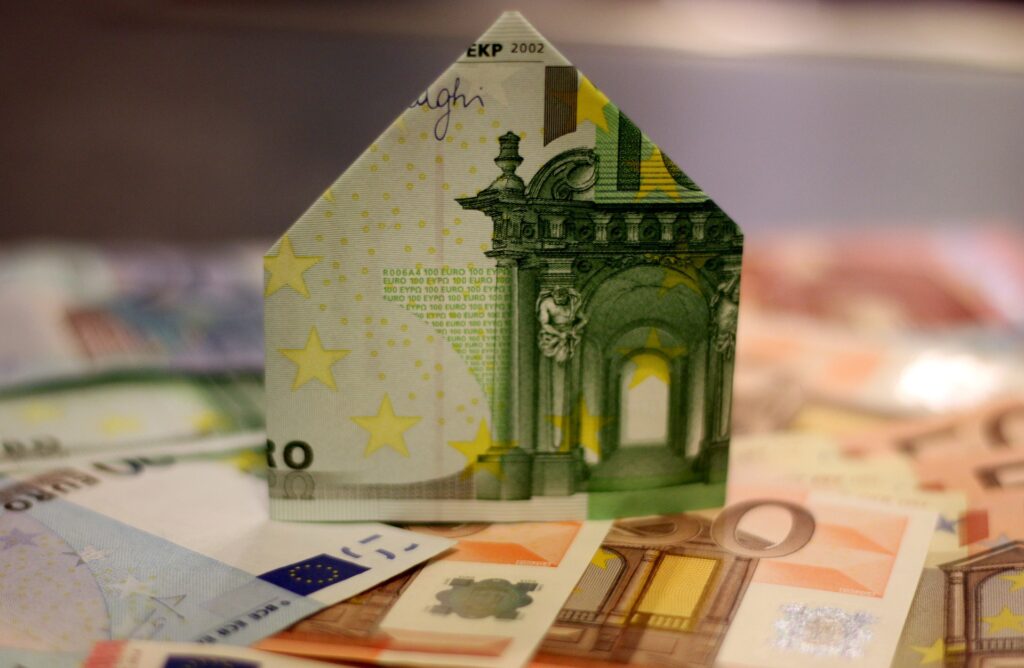Buying a new-build flat or house; it is quite an adventure with both pleasant and less pleasant things attached to it. One of the things that usually makes you less enthusiastic is mapping out the cost associated with the investment. And when buying new construction, let there be a lot of factors that determine the cost of your purchase. We list all 4 of them.
Factors that affect the total cost of your investment in new construction are:
- The building plot
- The location
- The finishing
- Notary fees
- VAT and registration fees
Factor 1: the building plot and the location
Anyone buying or investing in a new building starts by buying a building plot. Depending on how big and expensive that land is, you can build a larger or smaller property on it. On average, a building plot in Belgium costs just under €190,000. Although, of course, this cost strongly depends on the size of the plot, as well as on the location where you buy the land.
On the outskirts of a big city, a building plot is usually a lot smaller, but more expensive. If you buy somewhere further away, you increase your chances of getting a larger, but cheaper land. There are also a lot of costs associated with your location, such as county taxes, for example.
Factor 2: the finishing touches
The finishing of your new construction project also plays a big role in the final cost. If you choose a refined finish with expensive materials and accessories, the final cost will be a lot higher than if you opt for a less extravagant finish.
And it is not only aesthetics that contribute to a more or less expensive price; your choice with regard to insulation, for example, and the premiums available for it, can also result in a serious price difference. More information on this can be found here: https://www.premie-isolatie.be/
Factor 3: credit costs
Those who can buy a property without passing through the bank first are rare. So to buy property, it is best to take out a mortgage loan. This requires monthly interest payments and a notarial deed. The credit costs associated with the purchase of a property or new construction are:
- Bank expertise
- Registration fees
- Mortgage registration
- Deed costs
- Notary fees*
- Administrative costs of the bank and notary
- Debt balance insurance
*Notary fees
An unavoidable cost, is that of the notary. Since he or she prepares your file and draws up the deed, you will be charged a fee. This fee is laid down in a Royal Decree and is therefore the same for all Belgian notaries. Together with some other costs, these are described as the ‘notary fees’.
Factor 4: VAT vs. registration fees
What is VAT?
Typically, we pay a daily VAT (value-added tax) amount on top of every product or service we purchase or enter into. We also pay VAT on houses and flats, as well as on the services offered by a builder or contractor.
Normally, you pay 21% VAT on the construction value of a new house or flat. Yet since 1 January 2021, you may be eligible for a reduced VAT rate of 6%, more specifically if you buy an old building that needs to be demolished, to be rebuilt afterwards.
Note that this measure is subject to specific conditions and limited in validity until the end of 2023.
What are registration fees?
Anyone who buys a building plot, a (new-build) flat or house also pays the sales right on top of the purchase price. We call this selling right the registration fee.
If you buy an existing property, these registration fees are only 3%. This is subject to the condition that it is your only and own home or flat. For those buying a building plot or a second home, different rates apply. Whereas you paid 10% on these until recently, you now pay 12% registration duties.
But if you opt for a newly built home, the calculation of the registration fee is a bit more complicated. This is because the purchase price consists of both a land share and a construction share. That ratio is usually 30/70, but depends on the project and the region in which it is being built. The land value in central cities, for instance, is a lot higher in cities than elsewhere. On the land share in new construction, you pay 12% registration duty.
Of course, the final cost of purchasing a newly built property depends on the final decisions you make, as well as the environmental factors that apply within the area where you buy. It is very difficult to make an exact calculation yourself. It is therefore best to call in an expert.
Are you planning to invest in a new building and would like a clear overview of the costs involved? We’ll gladly help you.


